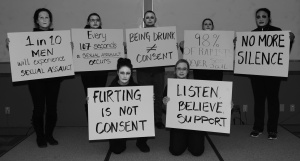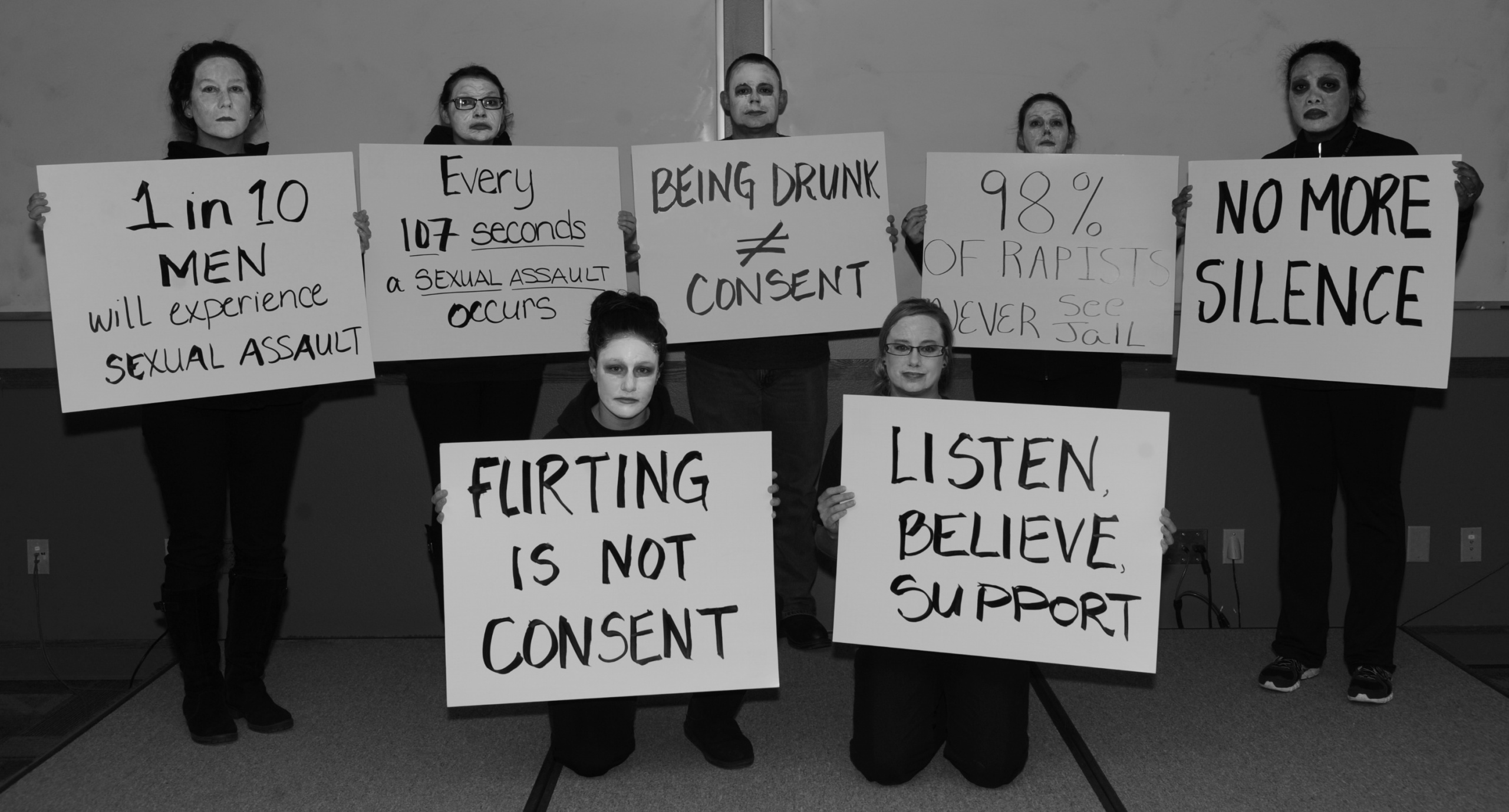 Sexual assault on college campuses is a common problem that often goes unreported. According to the National Sexual Violence Resource Center, 20%-25% of college women and 15% of college men are victims of forced sex during their time in college. More than 90% of Sexual assault victims on college campuses do not report the assault. The statistics on sexual assault and harassment on campus show the need for change. I think the first step would be finding ways to constantly inform students about sexual harassment and what they should do if it were to occur.
Sexual assault on college campuses is a common problem that often goes unreported. According to the National Sexual Violence Resource Center, 20%-25% of college women and 15% of college men are victims of forced sex during their time in college. More than 90% of Sexual assault victims on college campuses do not report the assault. The statistics on sexual assault and harassment on campus show the need for change. I think the first step would be finding ways to constantly inform students about sexual harassment and what they should do if it were to occur.
What is Sexual Assault?
Sexual assault is any type of sexual activity or contact that you do not consent to. Sexual assault can happen through physical force or threats of force or if the attacker gave the victim drugs or alcohol as part of the assault. Sexual assault includes rape and sexual coercion. Sexual assault can include non-contact activities, such as someone “flashing you” (exposing themselves to you) or forcing you to look at sexual images. Sexual assault can include any type of sexual contact with someone who cannot consent, such as someone who is underage, has an intellectual disability, or is passed out (such as from drugs or alcohol) or unable to respond (such as sleeping).
What does “consent” mean?
Consent is a clear “yes” to sexual activity. Not saying “no” does not mean you have given consent. Sexual contact without consent is sexual assault or rape. Consent means you know and understand what is going on, you know what you want to do, you are able to say what you want to do or don’t want to do and you are aware that you are giving consent. Consent is an on-going process, not a one-time question. If you consent to sexual activity, you can change your mind and choose to stop at any time. Past consent does not mean future consent. Saying “yes” to a sexual activity is not consent for all types of sexual activity. If you consent to sexual activity, it is only for types of sexual activities that you are comfortable with at that time with that partner.
Why Sexual Assault on College Campus is Common
Studies show that students are at the highest risk of sexual assault in the first few months of their first and second semesters in college. So why is sexual assault so common on college campuses? Campus sexual assault often involves alcohol and drugs. Many young adults use alcohol or drugs for the first time during college. Using drugs or drinking too much alcohol can make you unaware of what is happening around you and to you. Only one in five college-age women who are sexually assaulted report the attack to the police. Talking about sexual assault to strangers can be difficult, but reporting sexual assault can prevent attackers from hurting others and help you feel more in control. College-age students often live with people their own age on campus, rather than parents or other adults. Students may feel peer pressure to participate in social activities like drinking, using drugs, going to parties, or engaging in sexual activities that make them uncomfortable.
Steps to take to be Safer on College Campus
- Get to know someone well before spending time alone with him or her. College is often about meeting new people and making new friends. But do not rely only on someone you just met to keep you safe.
- When going to parties or hangouts with friends, arrive together, check in with each other, and leave together.conundrum for colleges
- Meet first dates or new people in a public place.
- Listen to your instincts or “gut feelings.” Most students who are sexually assaulted know the person who assaults them. If you find yourself with someone you don’t trust, leave.
- Be aware of your alcohol or drug intake.
- Keep control of your won drink, because someone could put alcohol or drugs in it without you knowing.
- Get help right away if you feel drunk and haven’t drunk any alcohol or of the effects of alcohol feel stronger than usual.
- Be aware of your surroundings.
Sexual Assault Myths & Misconceptions
There are many myths and untruths about sexual assault. These myths can make it hard for people to recover because they tend to blame the victim and defend the perpetrator.
- Women who wear revealing clothes are asking to be sexually assaulted. No one asks or deserves to be sexually assaulted. Women dress to feel comfortable and attractive. Perpetrators are responsible for their own actions.
- Most sexual assaults are committed by strangers. 8 out of 10 victims of sexual assault are assaulted by someone they know.
- If a person did not scream or fight or has no injury, it could not have been sexual assault. Most people do not scream or fight. This is because they freeze. It is a common reaction for people to become paralyzed with fear.
- “No” sometimes mean “yes”- women sometimes play “hard to get”. No means no!
- Victims cause the violence that has happened to them. It doesn’t matter what the person is wearing or how they are acting, no one asks to be raped.
- There is no reason for a victim not to report being raped to law enforcement. Rape is the least reported and convicted violence in the U.S. There are many reason why victims may choose not report to law enforcement or tell anyone what happened to him/her.
- Men cannot be sexually assaulted. Men can be, and are, sexually assaulted.
Why Do Sexual Assault Victims Choose Not to Report
- Concern for not being believed
- Fear of being blamed
- Fear of the attackers getting back at him/her
- Embarrassment or shame
- Pressure from others not to tell
- Distrust of law enforcement
- Belief that there is not enough evidence
- Desire to protect attacker
What Do To Do If You Are Sexually Assaulted While in College
If you are sexually assaulted, it is not your fault, regardless of the circumstances. If you are in immediate danger, call 911. If the sexual assault happened on campus or the person who harmed you was a student, you can also report it to school authorities for additional support. The school is required to help you continue your education. There are options to help you feel safe on campus, such as requesting to change class schedules, changing dorms, or obtaining a no-contract order.
Colleges Spreading Awareness
Colleges are required by law to provide students with sexual assault prevention education and increase awareness of sexual violence. Prevention education is a critical step in building a strong and safe college community. The right program can make all the difference.




